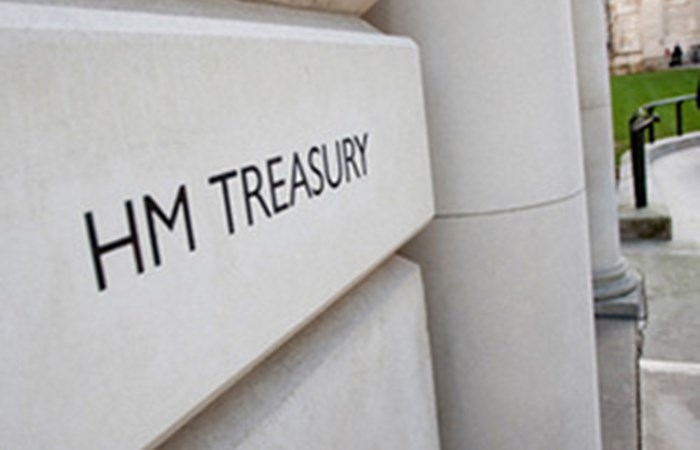HM Treasury

Speaking at the IMF Annual Meetings, the Chancellor praised President Chakrabartis record at the institution, and said he believes Suma is the right person for the job of leading the EBRD for the next four years.
The Chancellor welcomed President Chakrabartis work in modernising the institution to ensure it is in the best shape to support economic and democratic transition in the countries in which it operates. In particular, the Chancellor pointed to Sir Sumas leadership in responding the Arab Spring, starting up investment in the Middle East and North Africa, and it reaching 2.1 billion in just 3 years. The Chancellor also praised President Chakrabartis efforts to support Ukraine during its recent challenges as an excellent example of a flexible approach to crisis.
Importantly, the President has delivered this change while maintaining support overall for its region, and last year EBRD financing rose to 8.9 billion, an increase on the previous years achievement. Over the course of his first term President Chakrabarti has led the EBRD in achieving high levels of investment to help combat sluggish growth, reaching 34 billion in the last three years.
Suma Chakrabarti became the President of the EBRD in 2012, as a result of a fair and transparent process. His victory was a clear outcome, against a competitive field of five candidates. It is the first time a British President has led the institution in its 25 year history.
George Osborne, Chancellor of the Exchequer said:
I am pleased to announced that the UK will be supporting Sir Sum Chakrabartis candidacy for a second term as President of the European Bank for Reconstruction and Development.
I supported Suma in 2012 as he was the right person for the job, and since then he has built a fantastic track record at the EBRD. He is the right person for the future.
Key facts
- the EBRD was founded in 1991 and is headquartered in London
- it has 66 shareholders, and operates in 36 countries
- the institutions mandate is to foster the transition towards open market-oriented economies and to promote private and entrepreneurial initiative in countries committed to and applying the principles of multiparty democracy, pluralism and market economics
- last year EBRD financing rose to 8.9 billion, increasing from 8.5 billion in 2013
- Governors elect a President for the EBRD every four years by a majority vote. Governors can nominate candidates for the Presidency
- Sir Suma joined the EBRD from the British Ministry of Justice, where he served as Permanent Secretary. Prior to taking his position at the Ministry of Justice he headed the UKs Department of International Development. After studying Politics, Philosophy and Economics at the University of Oxford, he took a Masters in Development Economics at the University of Sussex
